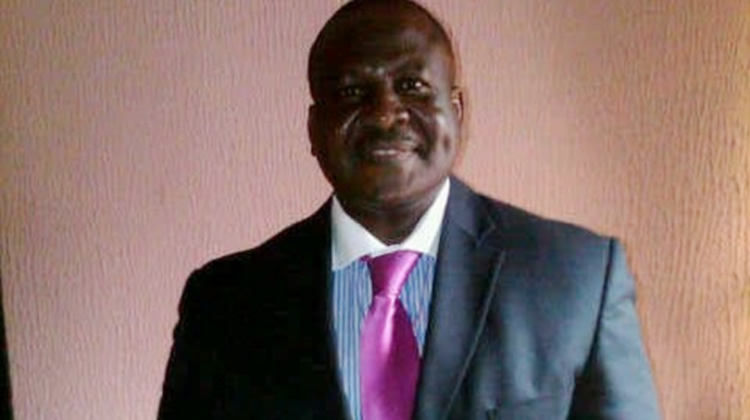
A security expert, Col. Hassan Stan-Labo (retd.), speaks to MUHAMMED LAWAL on the implications of allowing non-state actors in the country to brandish weapons, among other issues
You recently expressed the need for the Federal Government to release the leader of the Indigenous People of Biafra, Nnamdi Kanu. Why did you think it is important to release him?
The issue concerning Nnamdi Kanu is a political one that calls for a political solution. It is all about the agitation for Biafra, which is within his fundamental rights of association, speech and movement. He and a good number of other pro-Biafra agitators no longer feel comfortable within the union called Nigeria and wish to pull out. How is that a crime against the Nigerian state? The situation degenerated into the armed agitation we are faced with today under the Indigenous People of Biafra because the Federal Government turned deaf ears and ignored them for too long instead of having a conversation with them.
To worsen matters, the government embarked on a witch-hunt and incarceration of their leaders as seen in the case of Nnamdi Kanu. I believe that the continuous incarceration of Kanu further entrenches his heroic status with his people and deepens his relevance to the struggle for the realisation of the Biafran state. I will strongly advise that enough with the kinetic approach to this Kanu/IPOB issue. Can we begin to engage the carrot and stick diplomacy and see it play out? Can we in the larger national interest release Kanu, and open up talks with IPOB and Ndigbo in search of a lasting peace? In doing this, the voice of reason will prevail and superior arguments will hold sway.
Don’t you think discussing with leaders of groups that bear arms is an indication that security outfits in the country are no longer capable of fighting these arms-wielding groups?
It would be best if you separated, on one hand, armed agitation for self-rule from armed banditry and terrorism. While the former has a political undertone and only degenerated due to poor handling by the government, banditry has a criminal intent and terrorism is insurgency prone. Armed agitators can be persuaded to disarm and come to the discussion table in the nation’s interest. Where they resist, then the might of the state can be used in compelling them. However, armed bandits and terrorists are never to be negotiated with. The state must bring its full might to bear on them with the aim of eliminating or flushing them out of the Nigerian territory.
Unfortunately, in the last eight years, we witnessed a seeming inability of state power to deal decisively with banditry and terrorism mainly due to a lack of political will. Given the new leadership on the ground and the willingness to work so far noticed at the political-strategic level, it is hoped that our military will perform optimally this time around. As we all know, poor leadership in the last eight years as seen in the past administration’s trademark lacklustre layback attitude to state matters of urgent attention was partly responsible for the poor outing of the military in some instances.
Do you think the new Chief of Army Staff, Lieutenant General Taoreed Lagbaja, has what it takes to surmount Nigeria’s security challenges?
The current COAS is a sound professional who has gone through the grill. He belongs to the elite Special Forces Airborne Corps with a wealth of operational exposure and command experience. Since coming on board, we have seen him leverage his appointment as the COAS to make proactive adjustments to Command Field postings in the facilitation of the C-in-C’s directive to fix the insecurity situation on the ground. He has what it takes in conjunction with the expected synergy that should exist among the service chiefs. That synergy must be characterised by a good sense of collaboration, cooperation and coordination at all levels.
What is your take on allowing repentant Boko Haram members and other former militants back into society? Don’t you think such an action will be counterproductive?
Any attempt at reinsertion of ‘repentant’ militants, be they bandits or Boko Haram, into society must be done with great caution. Some had in the past gone back to their communities with the intent of meting out vengeance on perceived persons that exposed them. My concept of execution in an attrition war of this nature is to eliminate the belligerent force on the battlefield without having the additional problems of Prisoners of War in your hands to contend with.
This however must be done quickly before he drops his weapon and surrenders to you. If he succeeds in surrendering to you, you will be under obligation as a professional to take him as a PW in line with the tenets of the International Law on War. This is where our soldiers often miss it. We must execute this war with a sense of deliberate elimination of the enemy, otherwise, we will just be mobilising an enemy reserve force that will confront us in the near future. They pledge loyalty and profess repentance only when confronted and boxed into a corner.
Why were attempts not made to reach out to the troops for a truce if their repentance was genuine? Presently, we have a few thousand repentant ex-militants undergoing routine processing and the DDR (Disarmament, Demobilisation and Reintegration) programme before reinsertion. They are fed, clothed and accommodated at the nation’s expense. On the other hand, their victims are in IDP camps begging for food, clothes and shelter. How justifiable is this?
What do you make of some individuals who brandish guns in public without being arrested?
The security menace constituted by non-state actors brandishing automated weapons and challenging the monopoly of the state in possession of automated firearms is disturbing. Nobody can freely brandish automated small arms in Nigeria without state backing. This is part of the reason why the fight against banditry and terrorism in Nigeria remains difficult because some of the non-state actors are doing their master’s bidding. Leadership both at the national and sub-national levels has remained complicit in their actions and therefore less committed to the national course of defeating the belligerents. The situation in Southern Kaduna comes with vindictive genocide intent. The viral video confession of the former governor of Kaduna State says it all.
Do you think society is under threat by the actions of such non-state actors?
When you are backed by the powers that be, definitely you will display so much effrontery. Did you see the DSS go after Asari Dokubo? But they went after Godwin Emefiele for being in possession of a locally-fabricated Dane gun. These developments do a lot of damage to the image of this administration. Nigerian society comes under severe threat from this type of behaviour. However, as you know too well, nobody has a monopoly on violence. The situation can only lead to the proliferation of armed thugs or private armies as a counterforce.
Being a popular individual, do you think Asari Dokubo’s open display of weapons is appropriate?
Asari Dokubo’s open display of automated weapons is not appropriate and infringes on the laws of the land. It challenges the monopoly of the state over the sole possession of automatic weapons.
What do you think should be done to him?
Arrest him for unlawful possession of the firearm. Interrogate him and investigate the source of the firearm. Then arraign him before a court of appropriate jurisprudence. Prosecute him with the relevant charges.
Do you think Lieutenant General Lagbaja made a good decision by dismissing amnesty for bandits?
Yes, the COAS took a sound decision by dismissing amnesty for bandits and terrorists. You don’t negotiate with bandits and terrorists. You rather hasten their appointment with God where they can seek penance and ask for forgiveness. The issue of amnesty cannot be rationalised for them because they have no justification for the criminality they are engaged in. The Niger Delta militants were fighting the Federal Government over the degradation of their land by oil companies without adequate compensation for their means of livelihood. They were not engaging in the unilateral abduction or kidnapping of their people except for oil top management staff members.
What new strategies can be embraced to end insurgency in the country?
Take bolder steps to halt the proliferation of small arms. Enlist community buy-in within your area of responsibility. Enhance the non-kinetic approach in your operations. Be more aggressive and dreadful in dealing with bandits and terrorists. Do not take hook line and sinker what the state governors tell you in the field. Some of them are neck-deep involved and complicit. Enhance your response time for emergency calls. For a long-term plan, the service chiefs should articulate a national security sector reform document. Such a document will avail the country of far-reaching solutions to the multifaceted challenges of funding, manpower, logistics, equipment, training, intelligence, welfare, motivation, etc.
Arms-bearing youths usually cause mayhem during elections. What should be done to ensure such people don’t have their way in Bayelsa, Kogi and Imo governorship elections coming up this year?
The November 11 election for the three states is off-track election. So, it allows security agencies to deploy in full strength in readiness for unwarranted situations. The problem with the Nigerian state is that we are quick and good at making laws but shy away from prosecuting offenders. How many people have we prosecuted for violation of our electoral laws? With all the mayhem that took place in Lagos and several parts of the country in the just concluded elections, has anyone been prosecuted? So, when sanctions are never applied to serve as deterrent to lawbreakers, they get further emboldened.
What is your advice to politicians who sponsor these youths as political thugs?
Politicians sponsoring our youths for thuggery should desist from doing so. It is necessary to impress on them that everybody has the right to win elections. That is why the process must be free, fair and transparent. If politicians continue to sponsor youths as thugs during election periods, our electoral process can never be the best. The state government should also engage these jobless youths. Vocational training or skills acquisition opportunities should be made available to them.
There are millions of arms and ammunition in wrong hands in the country. How best can the Federal Government mop them up to keep the country safe?
Mop-up strategy for illicit small arms and weapons in wrong hands should involve rejuvenating our border control protocol for effectiveness, organising monetary compensation for those who submit their arms and ammunition, embarking on weapon surrendering exercise for ex-militants, ensuring heavy sanctions for any illegal possession of firearms and revisiting the ECOWAS protocol on Free Trade and Movement to ascertain how much damage it does to our national security interest.














